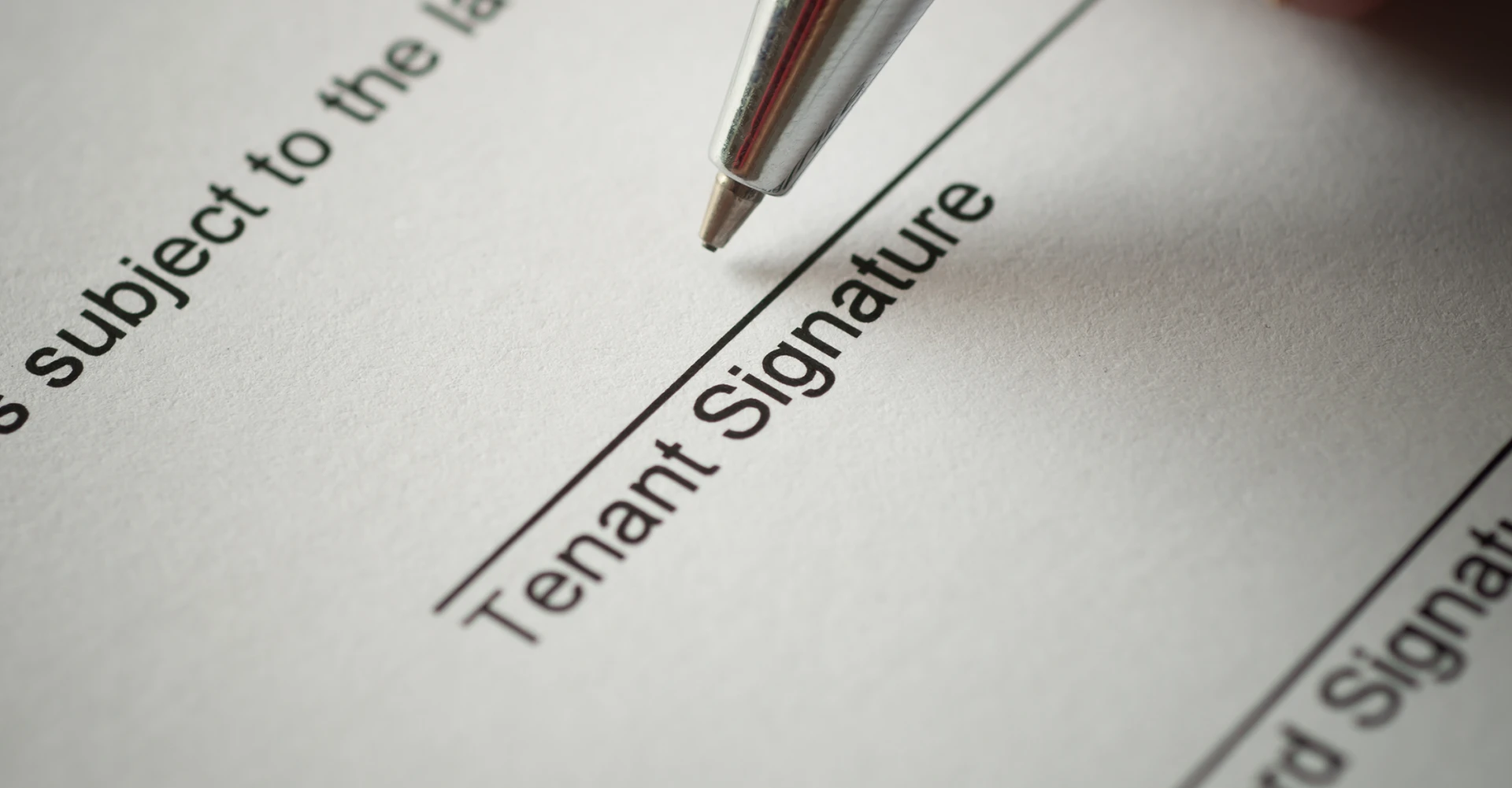Tenancy Agreement
A tenancy agreement is a legal document that contains everything you’ll need to know about the terms of your tenancy – from the period of the let to the conditions which underpin it. If you're a landlord or a tenant, chances are you would have come across at least one of these before.
Wards are here to help shine some light on the tenancy agreement process and outline what should be included in a tenancy agreement and what to do when it expires. Need more bespoke advice? Don’t hesitate to get in touch.
What is a tenancy agreement for?
Put simply, the tenancy agreement is a contract between the landlord and the tenant that clarifies and sets out the expectations of both parties during the time a house or flat is occupied. So, if a landlord rents their home out on the provision that the tenant living there pays rent on the 1st of every month, this would be a basic tenancy agreement.
Tenancy agreements are put in place to protect the rights of both the landlord and the tenant so that rules and duties on both parts are upheld, meaning that the occupation of the property is as stress-free as possible.
Do I need a tenancy agreement?
Technically no, but you’ll get one anyway - and this is a good thing.
In England and Wales, tenancy agreements are not a legal requirement. That being said, even a verbal agreement is considered a tenancy agreement, providing it does not involve breaking the law. When it comes to letting a home, landlords, and tenants both have rights and responsibilities, which are protected and enforced by a tenancy agreement. They can offer more than your statutory rights, but must never give you less otherwise the contract is essentially void.
Another thing – a tenancy is created automatically when someone moves into a new home and pays rent. With or without paperwork and written contracts, the person in question is still considered a tenant and so is entitled to their legal rights.
Are there different types of tenancy agreement?
Yes, but the default type of tenancy in England and Wales is known as an Assured Shorthold Tenancy (AST). In a nutshell, AST agreements don’t apply to holiday lets and lodgers (where the landlord is also your flatmate) and in Scotland, the system is slightly different from the rest of the UK. We advise seeking further assistance if any of this applies to you.
Written vs. verbal tenancy agreements
Tenancy agreements can be a written or verbal contract, which both pose their own pros and cons. A verbal contract may be easier and more straightforward, but should there be a dispute, it’s very hard for both parties to prove.
On the other hand, written tenancy agreements might be considered long-winded and – let’s face it – not the most exciting read. Also, if you’re a landlord, you might want a solicitor to draft one for you, which means extra expense. In spite of that, written agreements serve as a solid point of reference for both parties and aim to protect everyone involved.
A tenancy agreement is made of two types of terms, express and implied.
Express terms are explicitly stipulated in the written agreement, whereas implied terms are upheld by the law or are considered common practice. The latter might not be included in your contract and it is in the interest of both the landlord and the tenant to be aware of these rights upon taking up a new tenancy agreement.
What should be included in a tenancy agreement?
Here’s a comprehensive tenancy agreement checklist so you know what to look out for and be aware of:
- Names of all involved parties must be included.
- The agreed rent, stipulating when and how it is to be paid.
- Confirmation of the agreed deposit and how it will be protected throughout the term of the tenancy.
- How much of the deposit can be partially and fully withheld, in case of damage.
- The address.
- Tenancy start date.
- Tenancy end date.
- A clear outline of both the tenant’s and the landlord’s obligations.
- Bills you may or may not be responsible for.
You also may decide to include any extra information, such as:
- If and how the tenancy can be ended early. Take a look at our guide on Break clauses for more on this.
- An outline of who is responsible for minor repairs outside of what the landlord is legally responsible for.
- Any stipulations about having lodgers, pets or subletting.
What happens when the tenancy agreement expires?
You have two options when the tenancy agreement expires:
- Once out of your fixed term agreement, both tenants and landlords are able to serve their respective notices with respect of the contract and the law.
- Unless otherwise stated with adequate notice, the agreement is now a periodic tenancy, meaning that your contract runs on a week-by-week or month-by-month basis, depending on how you pay your rent.
Need more information about what happens when your tenancy agreement expires? Remember that the law is there to protect both tenants and landlords and therefore the terms of the tenancy agreement must be fair, legal and should never discriminate against either party. If something doesn’t feel right, ask an expert like Wards or even seek out legal advice. The Citizen’s Advice Bureau and Gov.uk are also great resources for landlords and tenants alike.
**Correct as of December 2022


